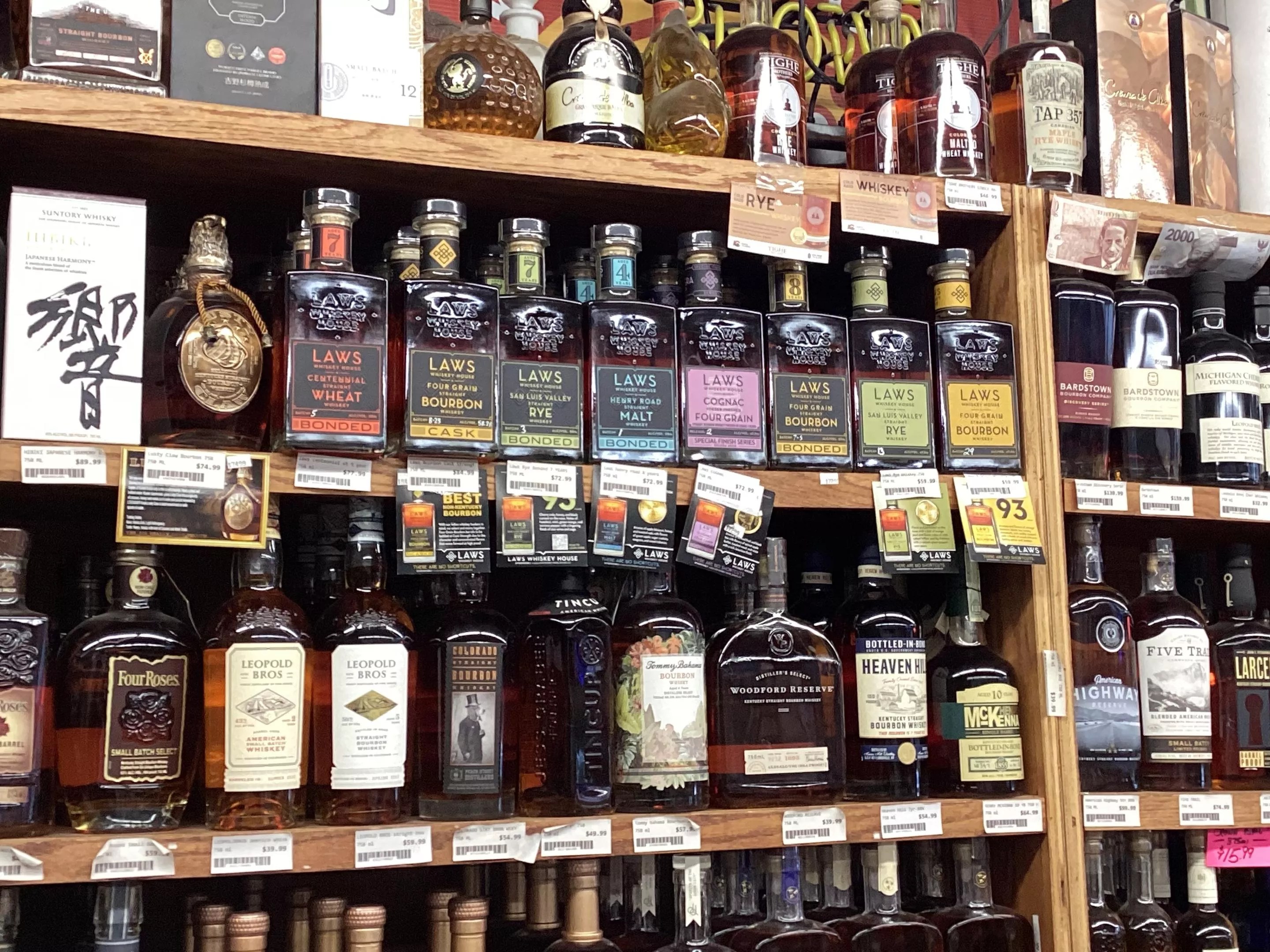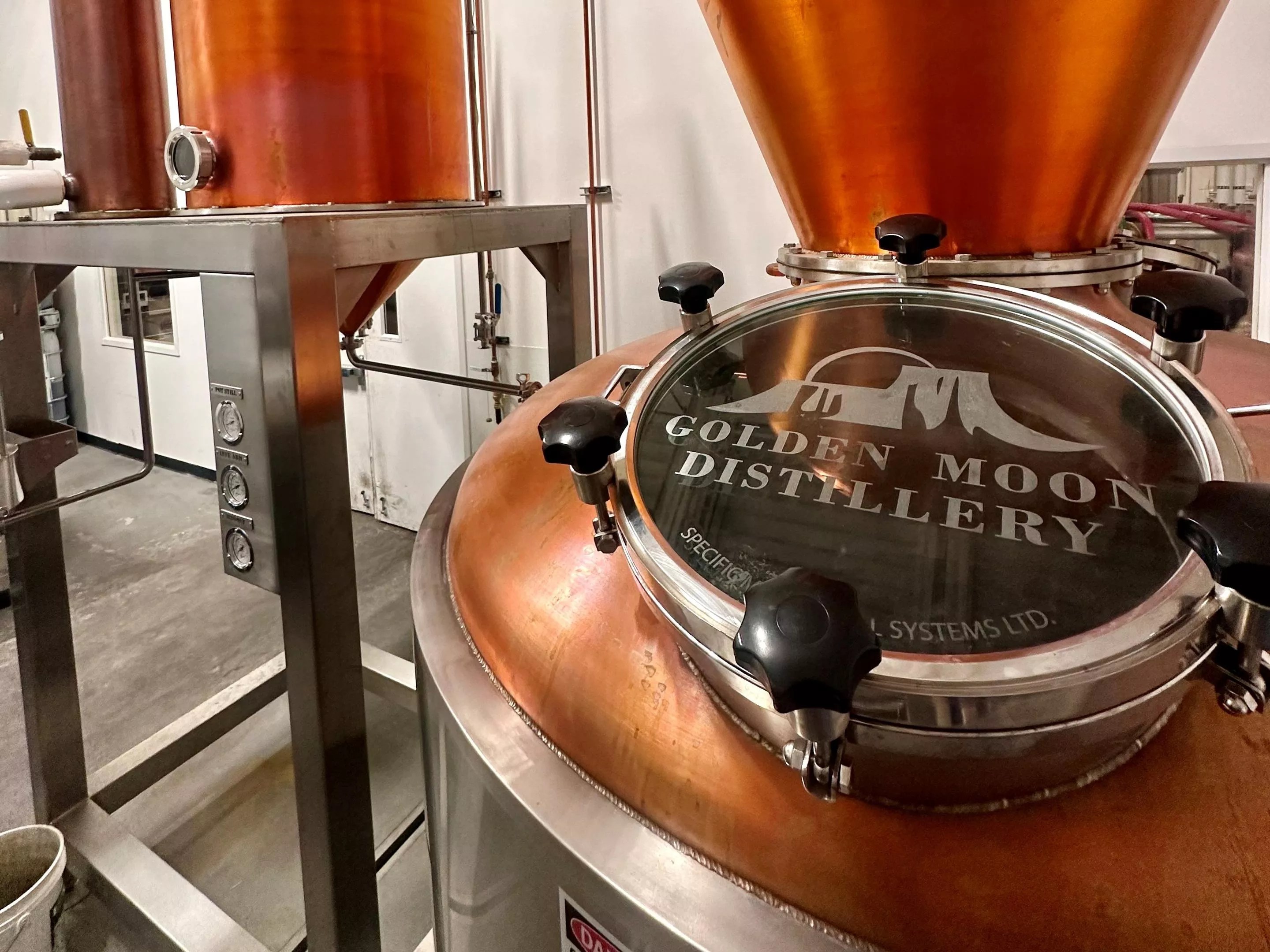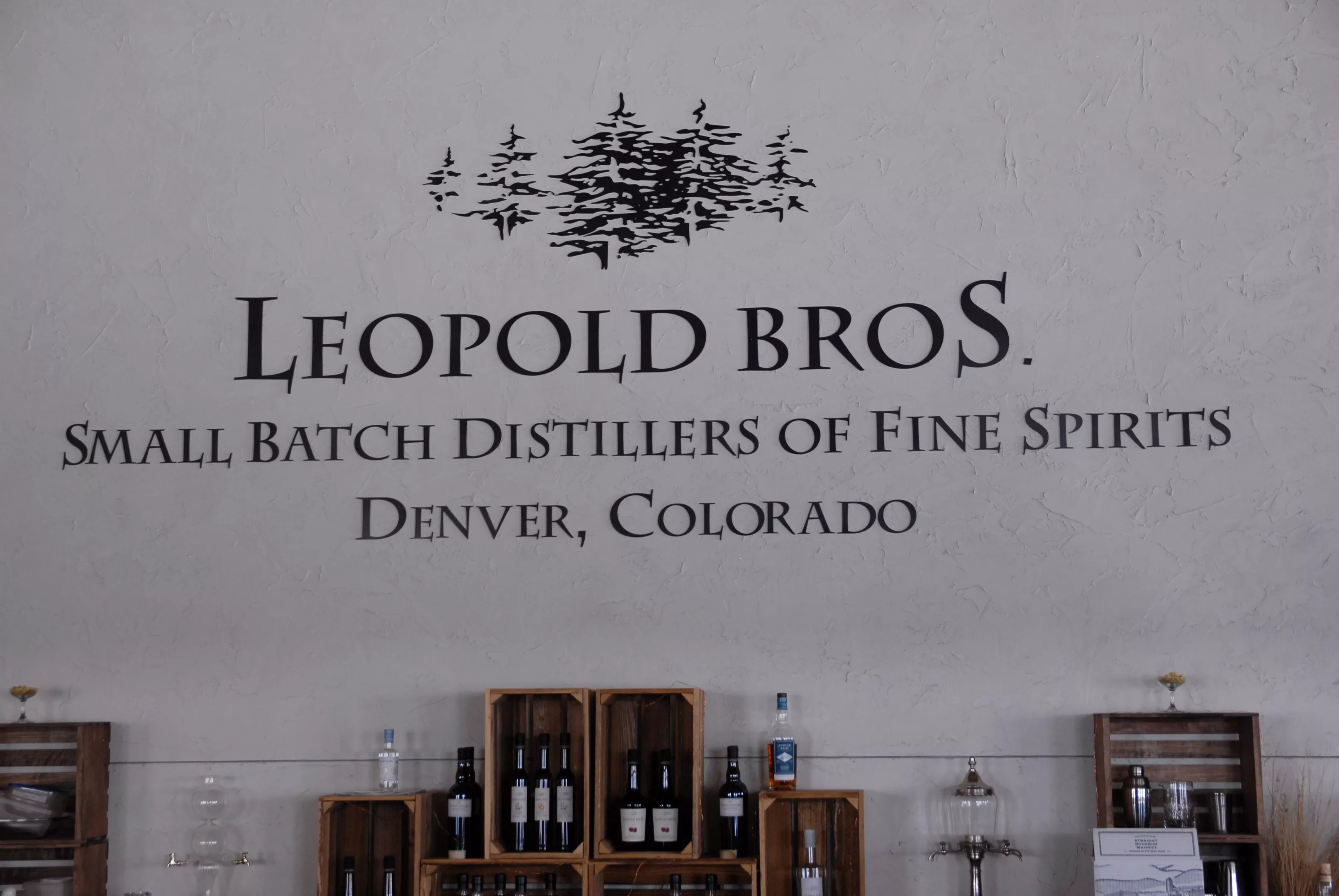
Molly Martin

Audio By Carbonatix
Since 2020, a steady drumbeat of bad news has reverberated through the alcoholic beverage world in recent years, and local distillers have not been immune.
In 2024, Golden Moon Distillery in Golden and Lee Spirits in Colorado Springs both shuttered, along with dozens of breweries. Brown-Foreman, producer of Jack Daniels, Old Forester, Herradura tequila, Finlandia vodka and many other brands, announced in January that it would lay off almost 650 employees. According to the American Craft Spirits Association’s 2024 Craft Spirits Data Project, craft spirits sales have declined nationally in both volume and sales.
“Is it demographic changes, systemic versus cyclical? Is it how much effect government warnings on the dangers of alcohol [have]? How much pantry-stocking there is left over from COVID? There’s all these factors,” says Colorado Distillers Guild president Lee Wood. In Colorado, he adds, the situation has been exacerbated by the fact that wine is now available in grocery stores.
“Prop 125 came in and has had a devastating effect on retailers. That’s been a killer. The only place we can sell is through independent retailers, liquor stores,” notes Wood, who is also the co-founder of Wood’s High Mountain Distillery in Salida. “If those guys start disappearing because of demographic changes or systemic or cyclical consumption changes, or wine getting picked up in grocery and full-strength beer, and now there’s just not enough of a market to keep a store open – those things will all have a really devastating effect on some small distillers in the state of Colorado.”
He says the legislation, a ballot initiative that was approved in November 2022 and went into effect on March 2, 2023, had an immediate and dramatic impact on sales for small distillers.
“Just like that, the spigot just stopped,” Wood says. “There was like the before times and the after times. It seems like it’s stabilizing, but it’s stabilizing at a lower level than it was before, and whether that’s a sustainable level or not to maintain a business … Everything I have is totally anecdotal, just through conversations, but you’re not hearing a lot of people say, ‘Oh, we’re having massive growth this year and buying new equipment and expanding.'”

Golden Moon is one of two Colorado distillers that closed in 2024.
Golden Moon Distillery
At Denver distillery Leopold Bros., the current crunch was expected. But the timing wasn’t. When then-Mayor Michael Hancock ordered liquor stores to close when COVID hit, causing a panic for several hours before the decision was reversed, “That’s when my brother and I are looking at each other going, ‘Ok, well, it’s been a good run,'” owner Todd Leopold recalls. “I don’t know much but if we can’t sell anything, we’re not going to last long.”
While liquor stores did not have to close, he says the company started asking the questions one ponders when trying to stay afloat: “How long can we pay our employees? How much equity do I have in my house?” They made hand sanitizer from 30,000 gallons of New Belgium beer and gave it away, and watched their small distributors sit on tens of millions of dollars of receivables, staring down the likelihood that they would go under.
“We went from looking in the abyss to all of a sudden, our sales went through the roof. We had the best year we ever had,” Leopold says – but that short-term success didn’t fool them. “Call it Eeyore syndrome. We knew that there was no way that that sales rate was going to continue, so we had been preparing for a slowdown basically since that peak. So starting in 2021, we’ve been expecting this slowdown to hit.”
Coming out of the pandemic, Leopold Bros. could see that there were a lot of unhealthy companies sustained by COVID money. Those would go under at some point and the broader market would correct from the sugar rush. Leopold just didn’t know the timing and all of the other factors that would contribute.
“We missed the target but hit the tree. We certainly didn’t predict tariffs. We certainly didn’t predict how big of a deal Dry January would be. All of the little things that would happen,” Leopold notes. “People not having as much disposable income – actually that one we did predict. You knew it was coming: all of the money that went into COVID for rent abatement, pumping money into businesses that would normally go under during the course of the year, those shutdowns were all delayed by all the COVID money that was going around.”

Leopold Bros. distillery in Denver has managed to weather difficult times after a short-term high during COVID.
Gabe Toth
Leopold Bros. sales have dipped from that high in 2020, but it’s still in a good position.
“So much of it is that my brother and I failed for fifteen years, we were barely keeping the doors open. We know what that’s like, we know what it’s like to stress about the bills on the first of the month,” Leopold says. “It makes us incredibly conservative with how we handle our capital and how we make our choices, and it’s just he and I. A lot of these production plants aren’t as lucky and have partners they have to answer to. We don’t. As long as we’re taking care of our crew and paying well, we feel incredibly lucky.”
Wood isn’t sure what the future holds for producers. Spirit-based RTDs (ready-to-drink cocktails) are gaining popularity but require more effort and scale than most distillers can dedicate to be successful.
“Unfortunately, the one bright spot on the market is just a little bit out of reach for most of us,” he says. There’s been a huge proliferation of SKUs that different brands are offering, and some of the peripheral players – companies that purchased spirits and put their own label on it – might find the effort outweighs the return.
“Those of us with significant capital invested in production and stuff like that are going to be a lot more reluctant to give it up. If you can just hang on long enough, kinda separate the wheat from the chaff, then there’ll be winners and there’ll be losers,” Wood concludes. “Who knows what 2025 is going to look like, but it’s not clear that there’s a lot of reason for optimism out there.”